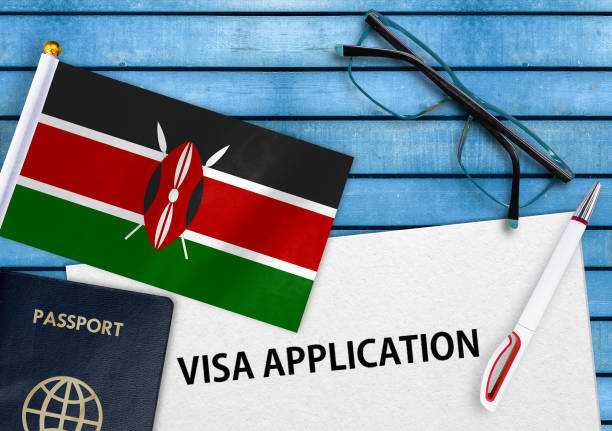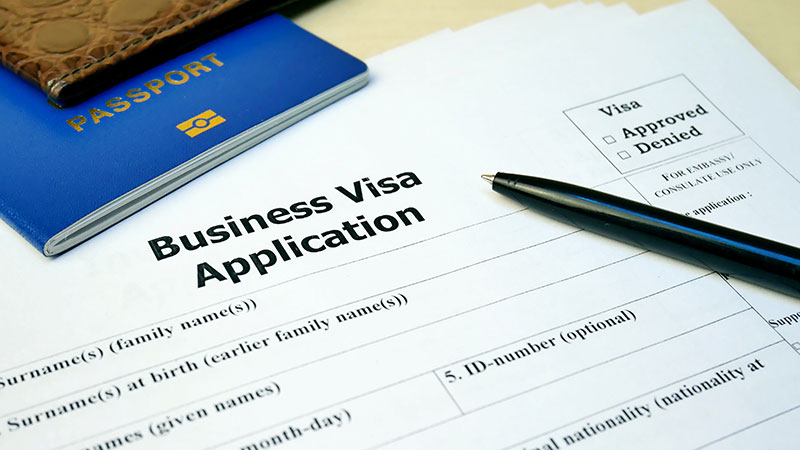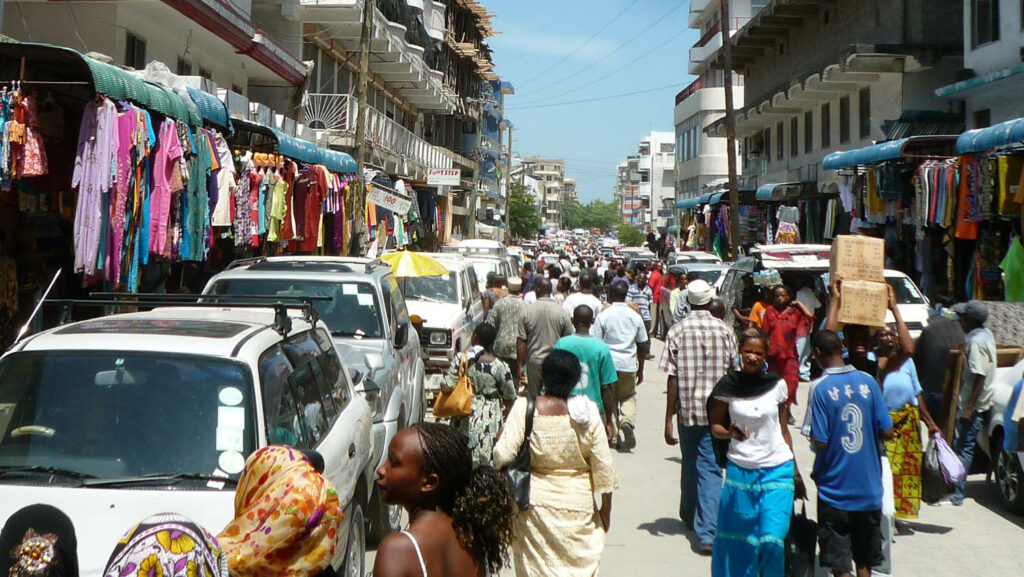Moving To Kenya Expat Guide part 2. You can see part one here.
Types of Visas Available For Expats in Kenya
Every country has different immigration laws, making it difficult for expats (expatriate) to understand how they should be staying in the country legally. Kenya is no exception, and there are many visa options available for expats wishing to spend some time living in Kenya.

There are four main types of visas available for those intending on staying in Kenya for less than three months; these are as follows:
Visit Visas
It allows you to stay in Kenya for up to one month. These do not have a fee associated with them. However, you will need to pay the standard customs fees when leaving the country.
Transit Visas
Transit visas allow you to stay in Kenya for up to three days. Again, you will not need to pay a fee for this visa, and it is typically valid from the date of entry into Kenya. Two types of transit visas can be issued depending on your circumstances:
- Single-Entry – The transit visas allow you to make a single journey through Kenya with a maximum stay of three days.
- Double-Entry – These transit visas allow you to make two journeys through Kenya with a maximum stay of three days at each entry.
Temporary Work
These Visas are available for those who plan on staying in Kenya for work purposes but less than 90 days. If you do not live here permanently, then this is likely the most appropriate visa option for you.
- P2 Visas – are available for those who plan on staying in Kenya for work purposes and intend to last between 90 days and two years.
For those expats intending on living or spending a significant amount of time in the country, there are several visa options available which range from concise term (6 months) to indefinite (5 years).
- Business Visa (Type P) – This visa option is available to those who do not live in Kenya permanently but intend to spend more than six months working or trading in the country.

Entry Permit
This visa is available for expats wishing to stay in Kenya with the primary intention of finding work. If you are in Kenya on another form of visa but have obtained a job offer in the country, then you can apply for an entry permit which will allow you to stay in Kenya while looking for work. This visa is also available for people who may not qualify for a business visa but are involved with certain businesses or organizations located within Kenya.
Residence Visa
This is a great visa option for those who do not currently live in Kenya but plan to stay indefinitely. Once issued, this visa cannot be changed to any other type of visa during the time it is valid.
Retirement Visa
People retiring to Kenya can apply for a retirement visa which will allow them to stay indefinitely as long as they have sufficient funds to support themselves.
Spousal Visa
If you move to Kenya and your partner is already living here on a legal basis, then this visa type is likely the best option for you. This visa allows people to stay in Kenya indefinitely as long as their partner’s status will enable them to do so.
Student Visa
This visa is available to those wishing to study in Kenya. Those on a student visa will stay for as long as they are studying, but their status can be changed from student visas to any other type of Kenyan visa with the correct documentation.
Work Visa (Type M)
This is one of the most common types of visa in Kenya and allows the holder to stay indefinitely as long as they are working. This visa option also includes dependants (spouse, children) who can stay with you for as long as you hold this type of visa.
● Visa Extension – Here, visas can be extended if you require more time in Kenya. The maximum extension period is one year.
Kenyan Passport
If you hold dual nationality, then you may be eligible to apply for a Kenyan passport. This is an indefinite visa that can only be obtained after eight years of legal, consecutive living in Kenya or five years of marriage to a Kenyan citizen. This article does not cover all visa types available; if you are unsure which visa best suits your circumstances, please get in touch with the nearest Kenyan Embassy for more information.
5 Things No One Will Tell You While Moving To Kenya

Even if you have never visited Kenya, the idea of moving to this East African nation full of diverse cultures is very intriguing. If you are reading this article, though, it means that you’ve already packed your bags and are en route to Kenya right now! Congratulations on taking the first step towards an exciting, life-changing adventure!
During such a huge transition, it can be overwhelming to learn about the practicalities of your new life. This article is here to address some very important practical information that no one will tell you during your Kenyan move.
1) Length/Height of Doorways/Doors
This is a crucial thing that not many people realize before their first visit to Kenya. If you are under 1.80m, you will have to stop every time you enter a room with a low door frame. The older the house, the more likely it is that the doors are sized for people who lived in this country even before it was independent.
2) Household Appliances
We are fortunate now to have access to all the household appliances that the modern world can offer. However, this convenience comes at a price – electricity bills, which are very expensive in Kenya. Older houses or those built before an era of abundant power supply have lower ceilings and thus require less energy to light the whole house, as opposed to new buildings where you often see lights on even during daylight hours for this reason.
3) Security Concerns
This is another thing that people are well aware of, but many fail to consider before moving to Kenya. Although the crime rate in Kenya has been significantly reduced through government efforts, but petty theft is still a major concern for foreigners living here.
Therefore, if you live in an affluent area or travel with expensive items, it would be best always to have a lookout person in your company when in public spaces, especially isolated ones.
4) Infrastructure
If you are moving to Kenya from an area with very developed infrastructure, be prepared for some serious adjustments. Many roads are still unpaved and covered in potholes that need fixing, while others are simply dirt tracks through the bush. In this case, always have a 4wd car if you are relying on public transport to get around, especially when traveling during the wet seasons.

5) Bugs
When moving here from colder climates where bugs are not an issue, it can be surprising for newcomers to come face-to-face with all manner of insects running rampant in Kenya. If you are staying in a house, good screens on windows and proper nets over beds are essential for minimizing problems.
If you can handle all of these adjustments with grace and patience, Kenya is the place to be. It will not only enrich your life culturally but also help you develop as an individual through new experiences that challenge everything you thought you knew about the world.
Are there any places where I shouldn’t go alone?
Although Kenya is not as dangerous as it was some years ago, but some areas should be avoided after dark or when going out alone. In general, expats should avoid going out alone in the slums, especially if they are not familiar with the area.
How long does it take to get a Kenyan visa?
Getting a Kenyan visa takes around three months. Expats who wish to travel in the meantime can apply for an East African Tourist Visa at their local Kenya embassy or consulate. A multiple-entry tourist visa valid for six months costs $100 and is issued within two weeks.
Conclusion
The benefits of moving to Kenya cannot be overemphasized until you check it out yourself. Whether you’re traveling to Kenya for a holiday or looking to relocate for the long term, you need to read this guide carefully. Nonetheless, refer to this platform to know more about moving and relocating to Kenya.


